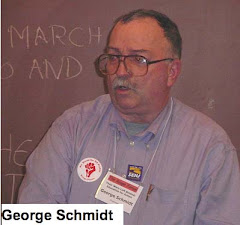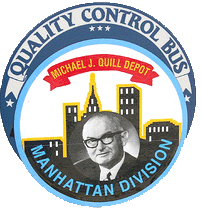an excerpt from Rose's biography by Jane Leeder
Lisa Luchkovsky, who is mentioned (and pictured on page 4) was my wife's great aunt
pesotta
Born Rakhel Peisoty or Peisotaya, 1896 - Ukraine, died 1965 - US
Few female Jewish immigrants to the U.S. have led lives as dynamic and eventful as Rose Pesotta. She was born Rakhel Peisoty in a Ukrainian shtetl, Derazhnia1 and became a rebel early in life, sympathizing with the anti-Czarist revolutionary movement, People's Will, before she became a teenager. At age 16 she immigrated to the US to escape an arranged marriage and to join her older sister. Their father was murdered in a pogrom in 1919, perpetrated by Ukrainian nationalists.
Arriving in New York in 1913, Rakhel Peisoty became Rose Pesotta in the confusion of the immigration offices on Ellis Island. Rose’s sister found her a job in a shirtwaist factory organized by Local 25 International Ladies Garment Workers Union (ILGWU). Before long she became an organizer for the union. She participated in many strikes and was the first woman elected to the executive board of the local, where she established one of the first worker education programs. Meanwhile, she learned English at night school and continued her studies at the Bryn Mawr School for Workers in Industry, the Rand School of Social Science and the Wisconsin Summer School for Workers. In 1926 she graduated from the Brookwood Labor College, which existed from 1921 to 1937 as a residential school for social activists belonging to the non-Communist left.
In 1933, she became a general organizer for the ILGWU and the next year she was elected a vice-president, the first woman to hold such a high post. She accepted the position, though she strongly believed that “the voice of a solitary woman on the General Executive Board would be a voice lost in the wilderness.” Her prediction proved correct as no other women were chosen, even as their percentage of the general membership rose to 85% by the 1940s.
Pesotta was an anarchist. She attended anarchist conferences, wrote for its press and opposed World War I as an imperialist war. She was befriended by fellow anarchist, Emma Goldman and nearly shared her fate in being deported. In 1919, Pesotta was arrested in the notorious Palmer raids and held for deportation as a subversive alien. Unlike Goldman, she was able to establish her citizenship. Her fiancé was not as lucky. He was deported to the Soviet Union along with Goldman and she never saw him again. Pesotta was again arrested again in 1927 for protesting against the execution of Sacco and Vanzetti.
Pesota had a flair for the dramatic. During a strike in Los Angeles against a manufacturer of sportswear, she dressed some of the young female workers in evening gowns and had them march in front of a posh hotel wearing their picket signs. She made sure the press was there. The favourable publicity this event received softened the position of the employer, who did not want to be seen as the exploiter of beauty queens. The strike ended in a victory for the ILGWU.
Pesotta was such an outstanding union organizer that the ILGWU loaned her to the union confederation the C.I.O. for its organizing drives in heavy industry. In the late 1930s, she assisted the rubber workers during their sit-down strike at Goodyear in Akron, Ohio and the auto workers during their sit-down at General Motors in Flint, Michigan. Despite language and cultural differences, she also achieved success organizing for the ILGWU among Mexican workers in Los Angeles, French Canadians in Quebec and in Puerto Rico.
Her union activism took its toll, both physically and emotionally. She was beaten so seriously by anti-union thugs that she suffered permanent hearing loss. Constantly on the move, she suffered from loneliness and was unable to establish a stable personal life. In 1940, she resigned from the leadership of the ILGWU, disillusioned with male domination of the union after David Dubinsky, long-time president of the union, didn't respond to her complaints about being the only woman on the executive board. She returned to the rank-and-file as a shop worker, where she vigorously supported the Allies in World War II. At the same time, she opposed the no-strike pledge taken by the leadership of both the AFL and CIO, because it tied the hands of workers while employers benefited from rising prices and profits.
Pesotta's life took a different turn with the onset of World War II. Shaken by the news of the slaughter of European Jewry, including many of her relatives, she joined the B'nai Brith Anti-Defamation League and began speaking throughout the country against anti-Semitism and racism. After the war, she traveled to Poland and visited the Majdenek concentration camp, where she met with survivors. She worked tirelessly to resettle them in the U.S.
In her earlier years, she had an ambivalent attitude toward her Jewishness. Echoing Thomas Paine, she declared, “The world is my country and to do good is my religion.” But the impact of the Holocaust turned her into a Zionist. She became Midwest Director of the American Trade Union Council for Histadrut and from then on identified with the Labour Zionist movement until the end of her life in 1965.
Pesotta also distinguished herself as an advocate for civil rights for African Americans. During her entire public life, she remained true to the lesson she learned from a private tutor back in the Ukraine: “The people come first. It is their actions that bring about changes in society.”
Pesotta had literary interests as well. She wrote a novel about a Yeshiva student who became a revolutionary and two volumes of memoirs, Bread Upon the Waters (1944) and Days of Our Lives (1958). She dedicated the second volume to the memory of the Jewish civilization destroyed by the Nazis.
Shortly before her death, Rose Pesotta was asked how she would live her life if she could live it over again. She replied, “I have no regrets of my chosen path of the past. I would choose the same path, trying perhaps to avoid some of the mistakes of the past. But always having the vision before me—in the words of Thomas Paine, ‘The world is my country. To do good is my religion.’” The sweeping idealism of that statement tells us much about Pesotta, anarchist, labor activist, immigrant, internationalist. Known primarily as one of the first female vice presidents of the international ladies garment workers union (ILGWU), Pesotta saw her union organizing as an opportunity to fulfill the anarchist mandate “to be among the people and teach them our ideal in practice.”






























0 Comments:
Post a Comment